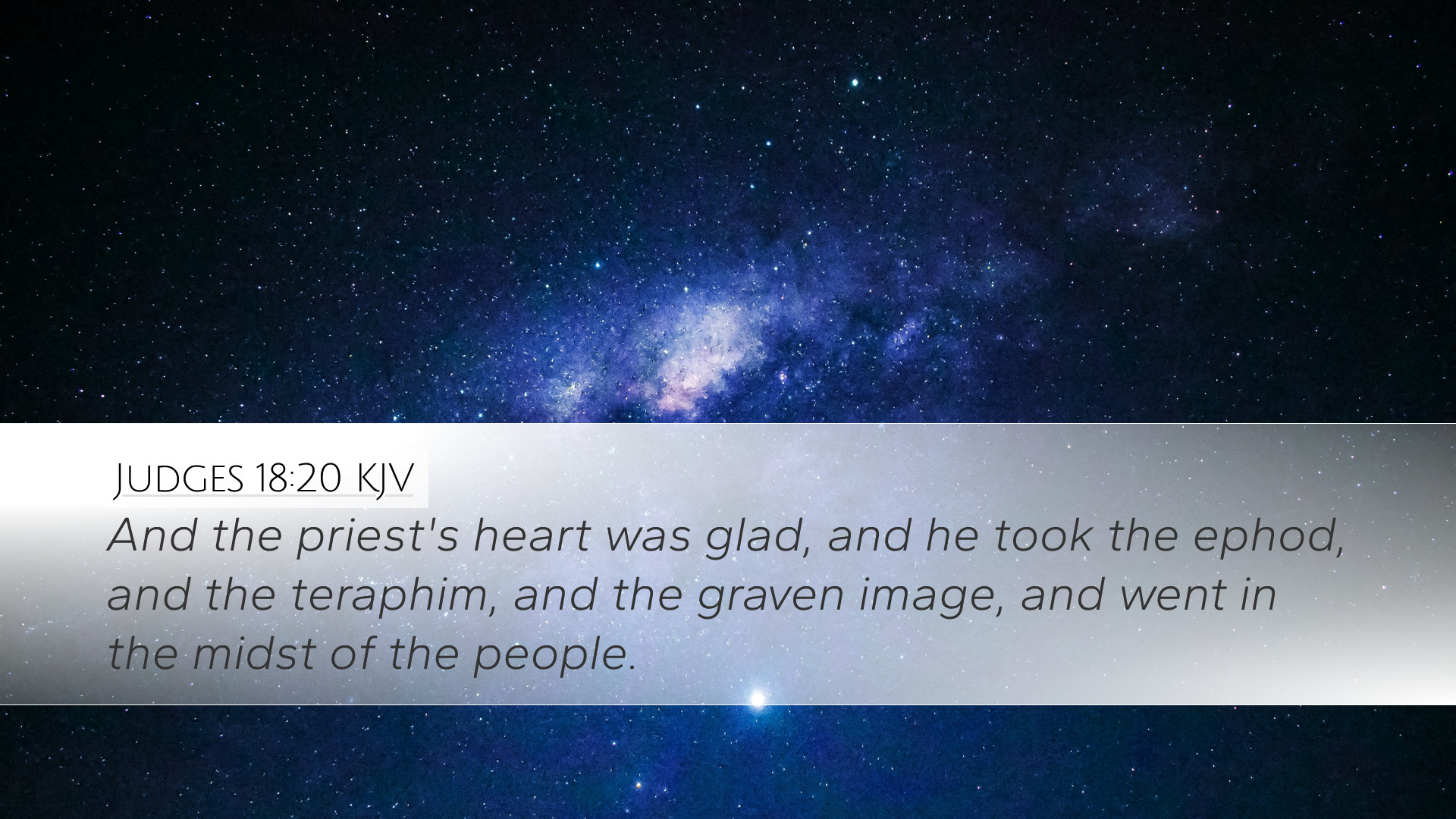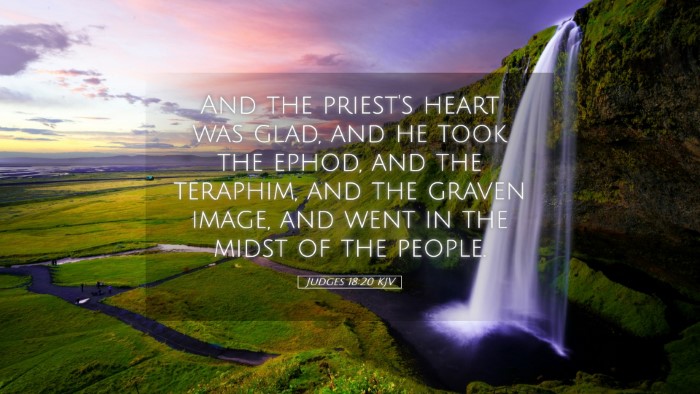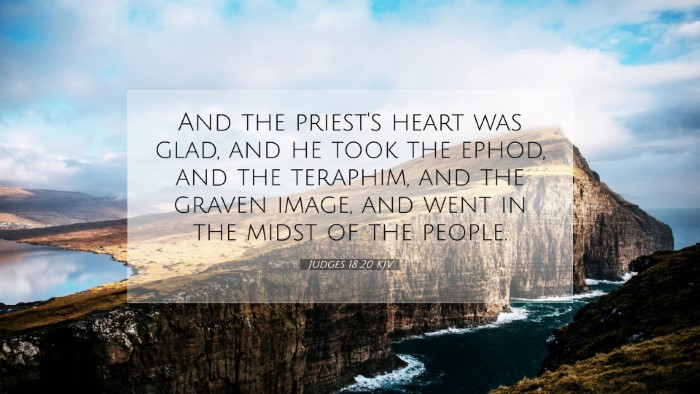Commentary on Judges 18:20
Verse Reference: Judges 18:20 - "And the priest's heart was glad, and he took the ephod, and the teraphim, and the graven image, and went in the midst of the people."
Introduction
This passage from Judges presents a rich tapestry of spiritual and theological themes. It offers insights into idolatry, the role of priests, and the dynamics of faithfulness and apostasy in Israel's history. Commentaries from Matthew Henry, Albert Barnes, and Adam Clarke provide depth to these themes, and the following is a synthesis of their thoughts.
Contextual Background
The book of Judges chronicles a tumultuous period in Israel's history, marked by cycles of sin, oppression, repentance, and deliverance. Judges 18 details the migration of the Danites, where they sought a more secure inheritance. In this process, they encounter Micah's idol and the Levite who had been serving as a priest to Micah's household.
Idolatry and Its Consequences
Henry emphasizes the grave error of Israel's idolatry, which was both a direct violation of God's commandments and symptomatic of a broader spiritual decline. The Levite, who should have served as a spiritual leader, finds himself participating in this idolatry:
- Religious Compromise: The priest's willingness to abandon Micah for worldly aspirations reflects a troubling trend among spiritual leaders who prioritize personal gain over divine fidelity.
- Consequences of Idolatry: Barnes notes that the acceptance of false worship leads to communal instability and a departure from Yahweh's covenant promises.
- Spiritual Blindness: The Danites’ embrace of the graven image reveals a disregard for true worship, showcasing a population that lacks discernment and commitment to God’s law.
The Role of the Priest
The Levite in this passage symbolizes not only personal ambition but also a broader commentary on the priesthood during the time of the Judges:
- Failure of Leadership: Clarke points out that the Levite’s eagerness to leave Micah is emblematic of a failure in the priestly role, as he neglects his duty for self-interest.
- Misguided Loyalty: This priest's actions raise crucial questions about loyalty and devotion—how easily he shifts allegiance from one house to another, seeking glory and acceptance among a larger group.
- Symbolism of the Ephod: The priest took the ephod, which was meant for worshipping Yahweh. Its improper use emphasizes the blending of true worship with idolatrous practices.
Theological Implications
This verse carries significant theological weight, especially regarding how worship is understood and practiced:
- Covenant Relationship: The joy expressed by the priest reminds readers that true worship and divine service should stem from a heart aligned with God’s covenant, not with selfish ambition.
- Community and Faithfulness: The gladness of the priest starkly contrasts with the spiritual anarchy prevalent in Israel, raising the question of what constitutes true worship in community.
- Divine Displeasure: The ease with which the priest and the Danites embrace idolatry highlights God’s discontent with the cultural and spiritual state of Israel during this period.
Conclusion
Judges 18:20 serves as a poignant reminder of the challenges of faithfulness in a culture seduced by idolatry and self-interest. Through the insights of Henry, Barnes, and Clarke, we learn about the deep implications of leadership, worship, and communal fidelity. For pastors, students, theologians, and Bible scholars, this verse invites reflection on our own practices and understanding of worship in light of scripture.


